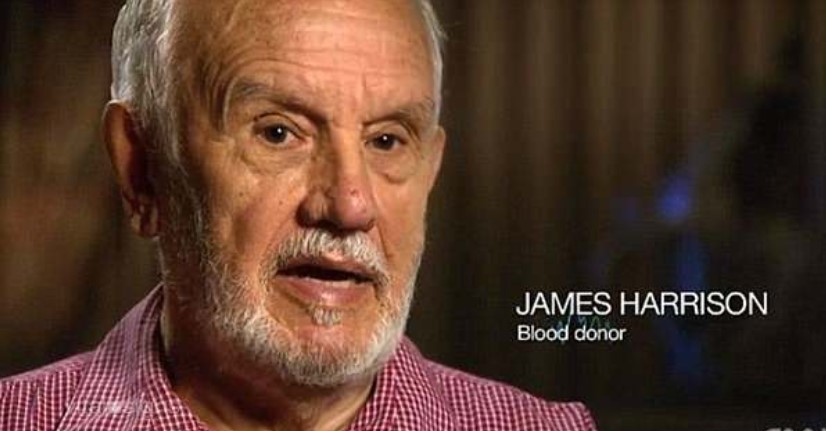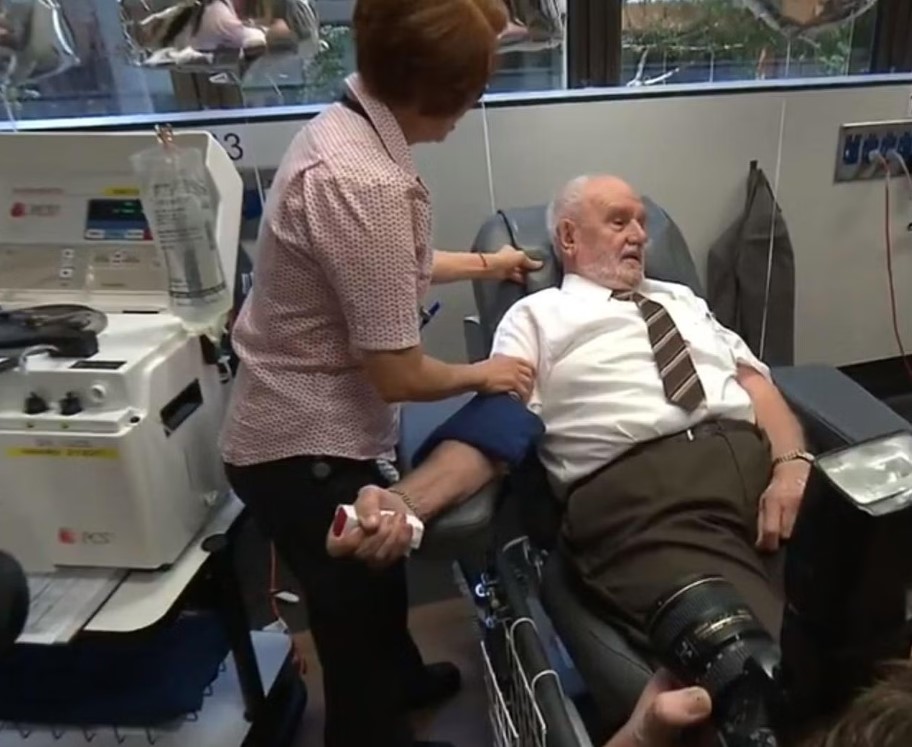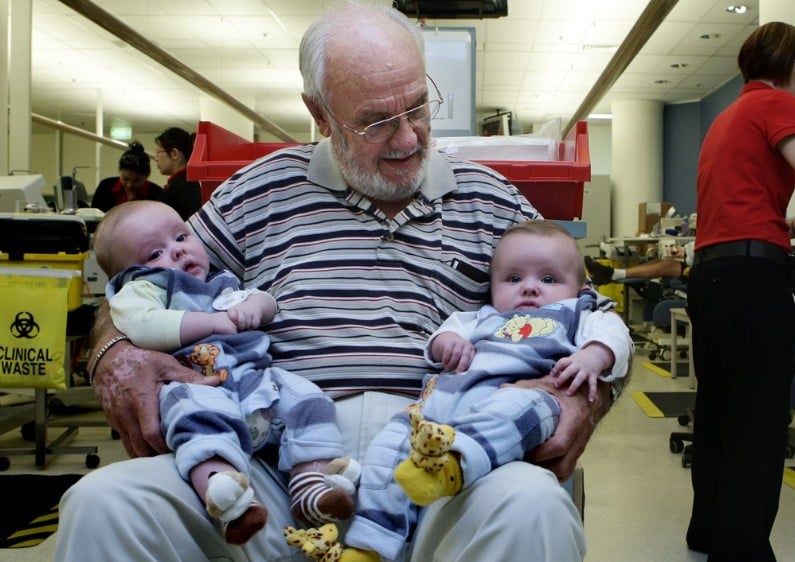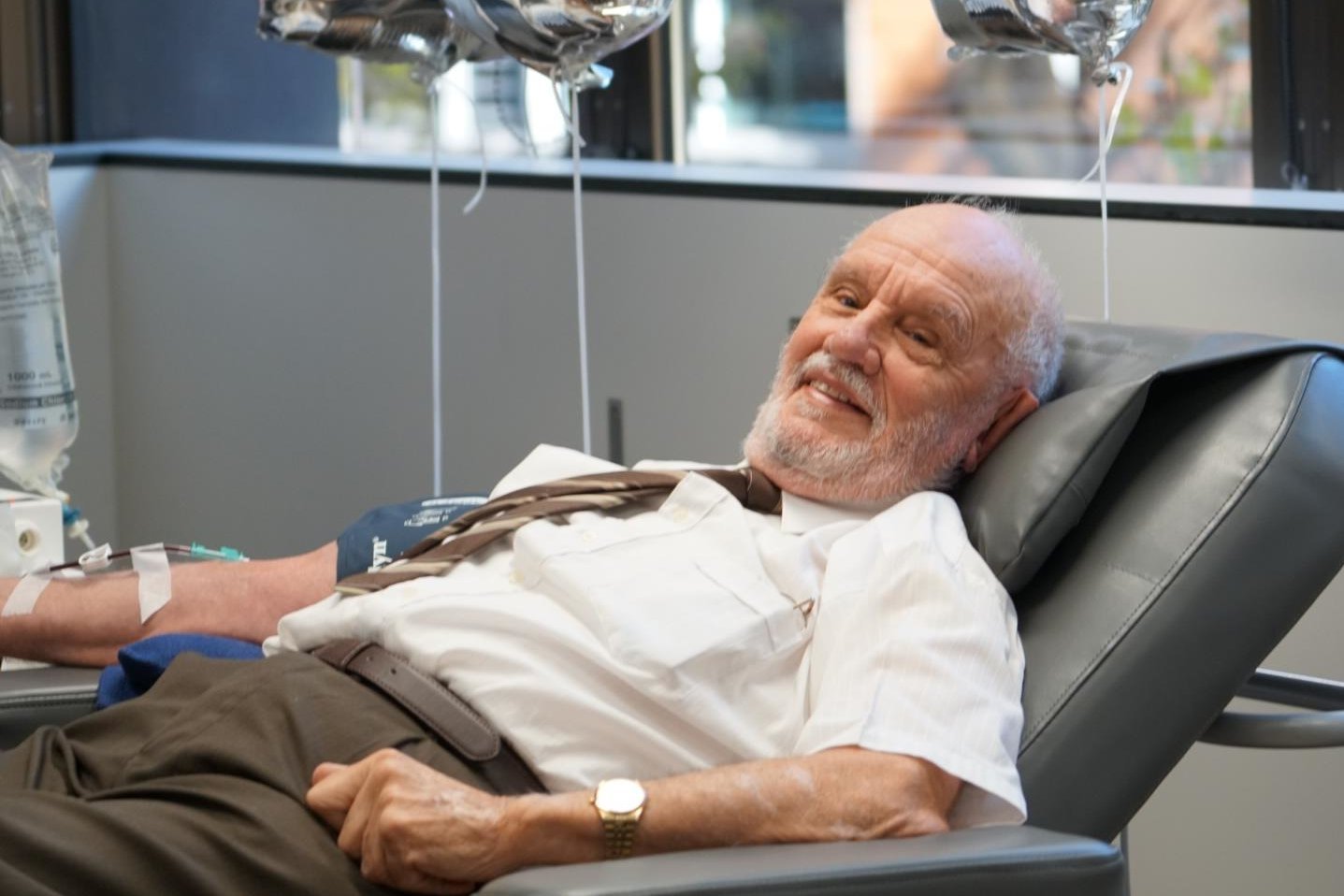James Harrison, known as the "man with the golden arm," has retired after saving the lives of 2.4 million babies in Australia through his weekly blood donations.
His selfless act of donating a special blood type has made a remarkable impact on the lives of countless families and has left a lasting legacy in the medical community.

At the age of 81, Mr. Harrison has provided a staggering 1,117 bags of flood over 60 years, containing a precious antibody that prevents babies from suffering from Rhesus disease, a severe form of anemia.
When Rhesus disease can develop?
Rhesus disease occurs when a pregnant woman's blood contains antibodies that attack and destroy her baby's blood cells.
This condition only affects pregnancies where the mother has Rhesus-negative blood (RhD negative) and the baby has Rhesus-positive blood (RhD positive).

Mr. Harrison's blood played a crucial role in the Australian medical field.
Mr. Harrison's blood plasma contains the necessary antibody to produce a life-saving medication known as Anti-D, which is administered to pregnant mothers at risk of their blood attacking their unborn babies.
Since 1967, more than three million doses of Anti-D, made from Mr. Harrison's blood, have been given to Australian mothers with a negative blood type.
His contributions have played a crucial role in making Australia the first country in the world to achieve self-sufficiency in the supply of Anti-D.

Upon his retirement, Mr. Harrison issued a challenge to the Australian community to surpass his incredible record, encouraging others to dedicate themselves to the cause of donating blood.
Jemma Falkenmire, spokesperson for the Blood Service, expressed Australia's immense gratitude to James Harrison for his exceptional kindness and emphasized that life-giving interventions like Anti-D are only possible because of individuals like him.
Man saves the lives of 2.4 million babies after donating 'special' blood type every week for 60 years
Mr. Harrison's dedicated act not only impacted the lives of millions of Australian babies but also had a personal significance.

Remarkably, his daughter, Tracey, successfully gave birth to a healthy son, thanks to her father's invaluable blood donations.
Joy Barnes, who works at the Red Cross Blood Bank in Sydney, is one of the many mothers Mr. Harrison has helped over the years.
She expresses her gratefulness to him for helping her to have a healthy baby after experiencing miscarriages.
The exact cause of Mr. Harrison's rare blood type remains unknown.
The reason behind Mr. Harrison's rare blood type remains uncertain, though doctors speculate that it may have been triggered by the transfusions he received as a teenager during a life-saving chest operation.

Despite his countless donations, Mr. Harrison humbly admits that he has never watched the needle go into his arm during the process.
Before the discovery of individuals with this unique antibody, thousands of babies in Australia were losing their lives each year, and the cause remained unknown.
The identification of Mr. Harrison's blood type was a groundbreaking development in the medical field, leading to significant advancements in preventing Rhesus disease and saving countless lives.






